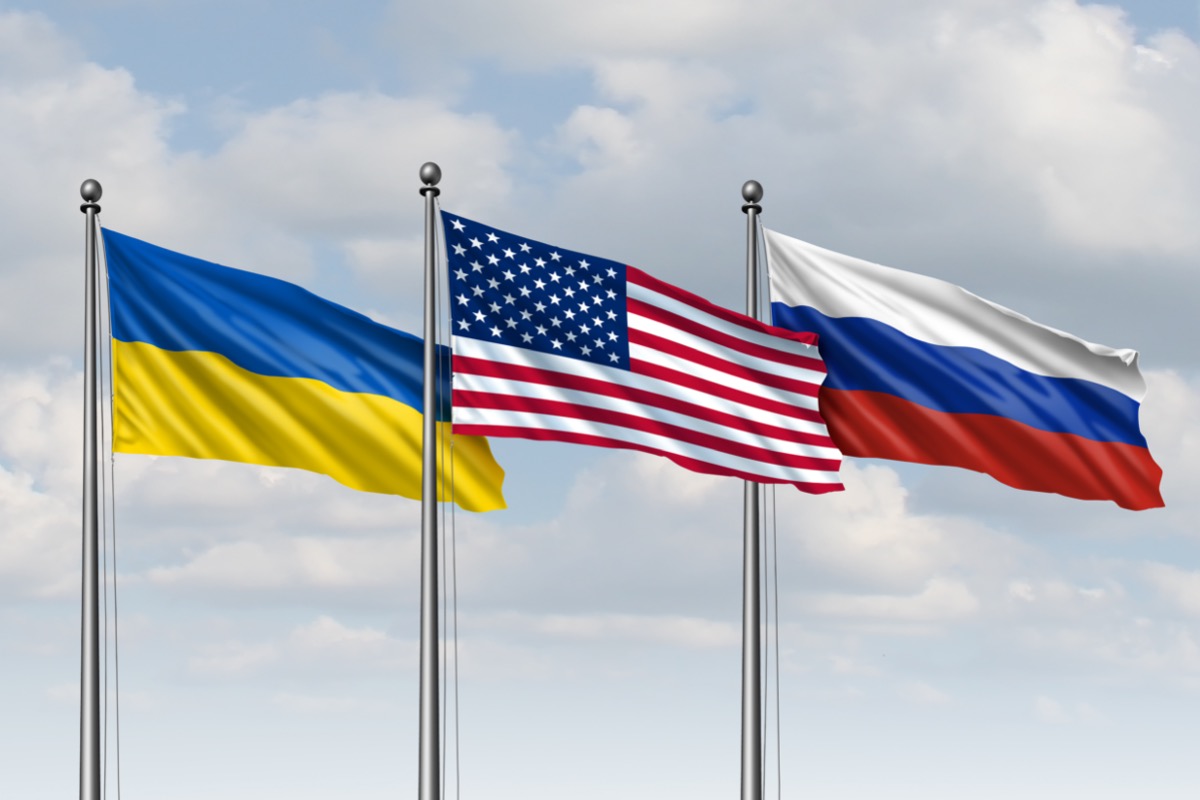


The Kremlin is urging American foreign-policy makers not to give Ukraine long-range Tomahawk missiles it can use to strike deep within the Motherland, pointing out this would directly implicate the U.S. Stateside noninterventionists worry their country may be catapulted into another hot war.
Giving Kiev missiles with a range of up to 1,500 miles will lead “to a new serious stage of escalation of the Ukrainian crisis,” said Russian Foreign Ministry spokeswoman Maria Zakharova on Wednesday. Moreover, it “will not just send the confrontation into a downward spiral, but also cause irreparable damage to Russian-US relations,” since the missiles’ use is “simply impossible without the direct involvement of the US military.” She added that this would be a shame, especially since the two sides “have just begun to display certain elements indicating the resumption of a bilateral dialogue.”
According to reports from early this month, somebody with President Donald Trump’s ear convinced him that providing Ukraine with weapons and intelligence to strike inside Russia is a good idea. Trump personally signed off on the decision, per The Wall Street Journal. The rationale is that hitting Russia where it truly hurts, its energy infrastructure, will cripple its ability to fund the war. Energy, particularly gas and oil, is Russia’s primary revenue generator. India and China are its main clients. While Europe has significantly decreased its dependence on Russian energy, some analysis indicate that India and China have more than made up for those losses over the last few years. At the same time, the Ukrainians’ swarm of drone attacks on Russian oil refineries appear to be somewhat effective. The Russians are now importing gasoline from their neighbor and ally Belarus, The Moscow Times admits.
Trump is once again frustrated with the Kremlin. Despite holding several talks with and rolling out the red carpet in Alaska for Russian head of state Vladimir Putin, the war rages as intensely as it ever has. The two sides are lobbing drones and missiles at each other nonstop.
Trump insists his goal is to foster peace. His series of talks with the leaders of both nations, his hitherto refusal to level more sanctions against Russia, despite persistent pressure from American and European warhawks to do so, and his record of peace-brokering in other conflicts (news is breaking that his involvement has helped secure the release of the remaining Israeli hostages) suggest the president genuinely seeks peace. But this latest decision, along with his refusal to completely halt all American aid to Ukraine, casts some doubt.
Before Trump met Putin in Alaska, Ukraine had warmed up to the idea of giving up territory, or “land swapping,” as Trump called it, particularly the area which is already occupied by Russia and is overwhelmingly ethnically Russian. But there has been no indication that they’re willing to give up on seeking membership in the North Atlantic Treaty Organization (NATO). This, the Russians have consistently contended, is the primary “root cause” of the war. As we have pointed out in several previous reports, this Russian grievance is legitimate.
Noninterventionists like Ron Paul and retired General Michael Flynn have criticized continued U.S. involvement in this war. Another group of people who would likely have opposed how the Trump administration is dealing with this situation are America’s wise early leaders.
In our June 23, 2025 print issue, we republished an older article titled “Minding Our Own Business” in which we reminded readers of what three early American presidents thought about U.S. meddling abroad.
George Washington saw Europe as a region full of drama that does us no good to be ensnared in:
Europe has a set of primary interests, which to us have none, or a very remote relation. Hence, she must be engaged in frequent controversies, the causes of which are essentially foreign to our concerns…. Why quit our own to stand upon foreign ground? Why, by interweaving our destiny with that of any part of Europe, entangle our peace and prosperity in the toils of European ambition, rivalship, interest, humor, or caprice? It is our true policy to steer clear of any permanent alliance with any portion of the foreign world.
Then there’s the famous maxim from John Quincy Adams about the problem with going half a world away to hunt down dragons:
America goes not abroad in search of monsters to destroy. She is the well-wisher to the freedom and independence of all. She is the champion and vindicator only of her own…. She well knows that by once enlisting under other banners than her own, were they even the banners of foreign independence, she would involve herself beyond the power of extrication in all wars of interest and intrigue, of individual avarice, envy and ambition, which assume the colors and usurp the standards of freedom.
And for those who remain unconvinced, here is what the author of the Declaration of Independence, Thomas Jefferson, had to say about getting involved in foreign entanglements:
Our first and fundamental maxim should be, never to entangle ourselves in the broils of Europe; our second, never to suffer Europe to intermeddle with cis-Atlantic affairs. America, North and South, has a set of interests distinct from those of Europe…. She should therefore have a system of her own, separate and apart from that of Europe.
In that same TNA article, we cited the prophetic words of essayist William Graham Sumner. Writing in regard to the Spanish-American War, Sumner predicted that a dangerous precedent had been set:
[E]xpansion and imperialism are at war with the best traditions, principles, and interests of the American people, and they will plunge us into a network of difficult problems and political perils…. The people … who now want us to break out, warn us against the terrors of “isolation.” Our ancestors all came here to isolate themselves from the social burdens and inherited errors of the old world…. What we are doing is that we are abandoning this blessed isolation to run after a share in the trouble.
